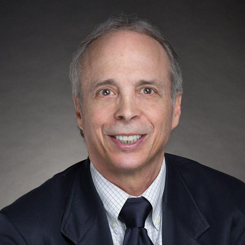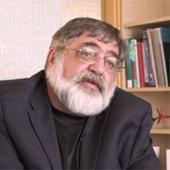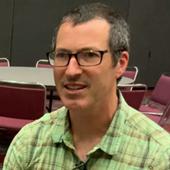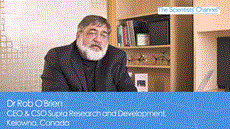- Partners for Progress in Oncology
- Accelerating Science Podcast
- Scientists' Choice Award® winners
- Blood testing
- Women in science
- SLAS
- Cell preparation, incubation & storage
- Microbiology & infectious disease
- Food safety & testing
- Cell culture
- Cancer research
- Cannabis testing
- Clinical laboratory diagnostics
- Mass spectrometry
-
More
Dr. Ethan Russo
International Cannabis and Cannabinoids InstituteCurrent challenges and future hopes for cannabis as an “extremely versatile medicine”
3 Oct 2019
In this video, Dr. Ethan Russo, Director of Research and Development for the International Cannabis and Cannabinoids Institute, discusses its work with a company that is developing novel delivery techniques for cannabis-based medicines to treat cancer patients. Russo goes on to outline the multiple potential uses of cannabis within healthcare, including — when in the right forms — for treatment of schizophrenia, depression, PTSD and more. He also identifies the current and future challenges faced in cannabis research and how they can be overcome.
I'm Ethan Russo. I'm a neurologist by training, and I'm the director of research and development for the International Cannabis and Cannabinoids Institute. People usually think of cannabis as a drug of abuse and are concerned about addiction or the possibility that it would exacerbate schizophrenia. In fact, cannabidiol, a component of cannabis, is currently being used to treat schizophrenia, and similarly, cannabis in the right forms could also be harnessed to treat a variety of other conditions including anxiety, depression, post-traumatic stress, and even as an agent to combat addiction.
Cannabis is an extremely versatile medicine, and one reason for this is that it is not just one compound, rather there are many active compounds, it's what's called a botanical medicine. My strong bias, from studying this for many years, is that we get our best results from extracts of the plant, rather than single compounds derived from the plant.
Additionally, this allows us, with selective breeding, to pick and choose a bit as to what components might be emphasized in a given preparation for a particular patient's malady in treating that specifically. Currently, with ICCI, we're very excited about working with a private company in Canada that's developing novel delivery techniques for cannabis-based medicines to treat current forms of cancer that are recalcitrant to available drugs and techniques.
Additionally, they'll be engaged in research on antimicrobials treating infections that are resistant to available drugs. The biggest barrier to cannabis research is actually legal restrictions, particularly in this country. I've been in this space for 23 years, and for a majority of that time, I've worked for foreign companies, whether in the UK or currently in the Czech Republic, so the first thing I'd like to see happen is that these barriers to research be lifted, and that can only be done through legislation, through Congress.
There are legitimate concerns about the dangers of cannabis, but they've been largely exaggerated. Properly formulated in non-smoking applications, this is a very safe agent. And again, people are most concerned about tetrahydrocannabinol, THC, but there are many, many other agents in cannabis that can be harnessed medicinally, and hopefully, that would allay some fears.
One of the areas of growing interest is novel extraction techniques for cannabis. Again, we're working with a plant, the medicines can be produced in different ways, often this is done with solvents, and these can introduce problems of their own.
But an interesting area is trying to extract the medicine without these and getting a pure, unadulterated kind of extract. So this is another area in which we're working and in the hopes that we can provide better and safer medicines to people.
Share this video
Related Scientists
Related Content

Dr. Ethan Russo
International Cannabis and Cannabinoids Institute International Cannabis and...Biography
Director of Research and Development for the International Cannabis and Cannabinoids Institute MoreDr. Ethan Russo
International Cannabis and Cannabinoids Institute
Dr. Ethan Russo received his Ph.D. in medicine from the University of Massachusetts Medical School in 1978. From 2003-2014, Russo was a senior medical advisor at GW Pharmaceuticals where he focused on numerous Phase I-III clinical trials of Sativex® for the alleviation of cancer pain unresponsive to optimized opioid treatment. More recently, Russo was a medical director and Phytecs and is now the Director of Research and Development at the International Cannabis and Cannabinoids Institute in Prague.










